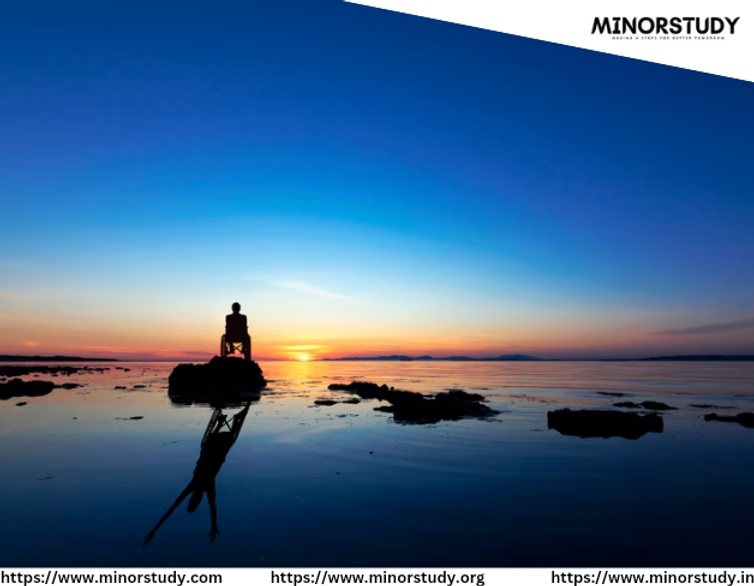🏔️ International Mountain Day: 11 Powerful Reasons Why It Deserves Global Celebration
Every year on December 11th, the world comes together to celebrate International Mountain Day, a United Nations-designated observance dedicated to raising awareness about the importance of mountains to life, biodiversity, culture, and climate.
- 🕰️ History of International Mountain Day
- 📊 11 Powerful Facts About Mountains That Will Surprise You
- 📅 Timeline of International Mountain Day
- ❓ Frequently Asked Questions (FAQs)
- 1. What is International Mountain Day?
- 2. Why do mountains matter?
- 3. What threats do mountains face?
- 4. How can I observe this day?
- 5. Are mountain regions economically vulnerable?
- 🌟 Significance of International Mountain Day
- 1. Protecting Nature’s Water Source
- 2. Safeguarding Cultural Diversity
- 3. Biodiversity Treasure Houses
- 4. Early Warning Systems for Climate Change
- 5. Spiritual and Philosophical Relevance
- 🌍 Observance Around the World
- 🎉 Wishing Message for International Mountain Day
- 👨👩👧👦 Importance in Our Daily Lives
- 📌 Key Points to Remember
- 🧭 Daily Life Impact
- ✅ Conclusion: Let’s Rise to Protect What Stands Tall
Mountains are not just awe-inspiring landscapes — they are lifelines for billions of people, sources of water, biodiversity hotspots, and custodians of ancient cultures. This article explores the history, facts, FAQs, timeline, significance, observance practices, heartfelt wishes, and the immense daily and societal impact of this important global day.
🕰️ History of International Mountain Day
The idea of highlighting mountain regions and their sustainable development has been in the making for decades. Here’s how it evolved:
1992: During the United Nations Conference on Environment and Development (Earth Summit) in Rio de Janeiro, Agenda 21 identified mountains as fragile ecosystems needing special attention.
2002: The United Nations declared this the International Year of Mountains, bringing global focus to mountain communities and sustainable development.
2003: The UN officially declared December 11 as International Mountain Day, to be celebrated annually.
Since then, it has become a global occasion to appreciate mountain communities, raise awareness about ecological balance, and foster international cooperation.
📊 11 Powerful Facts About Mountains That Will Surprise You
| Fact | Details |
|---|---|
| 1 | Mountains cover 27% of the Earth’s land surface. |
| 2 | Over 1.1 billion people live in mountain regions. |
| 3 | Mountains provide freshwater to over half of the world’s population. |
| 4 | The Andes, Alps, Himalayas, and Rockies support unique biodiversity and cultures. |
| 5 | Mountain ecosystems are extremely vulnerable to climate change. |
| 6 | The world’s highest mountain, Mount Everest, rises to 8,848 meters (29,029 ft). |
| 7 | Mountains are home to 15 of the world’s 34 biodiversity hotspots. |
| 8 | About 13% of the global population lives in mountainous areas. |
| 9 | Mountains influence weather and climate across vast regions. |
| 10 | Many world religions consider mountains sacred (e.g., Mount Kailash, Mount Sinai). |
| 11 | Mountain regions are often the first to suffer food insecurity from climate shifts. |
📅 Timeline of International Mountain Day
| Year | Milestone |
|---|---|
| 1992 | Earth Summit – Agenda 21 recognizes mountain fragility |
| 2002 | International Year of Mountains declared |
| 2003 | First official celebration of International Mountain Day |
| 2019 | Theme: “Mountains Matter for Youth” |
| 2020 | Theme: “Mountain Biodiversity” |
| 2021 | Theme: “Sustainable Mountain Tourism” |
| 2022 | Theme: “Women Move Mountains” |
| 2023 | Theme: “Restoring mountain ecosystems” |
| 2024 (expected) | Continued focus on resilient livelihoods and nature-based solutions |
❓ Frequently Asked Questions (FAQs)
1. What is International Mountain Day?
A UN-recognized annual day observed on December 11, aimed at highlighting the importance of mountain ecosystems and advocating for their sustainable development.
2. Why do mountains matter?
Mountains are water towers, biodiversity zones, cultural cradles, and vital for climate regulation. They affect billions of lives.
3. What threats do mountains face?
Climate change, deforestation, unsustainable tourism, soil erosion, and socio-economic marginalization of mountain communities.
4. How can I observe this day?
Learn about local mountains
Promote sustainable travel
Support NGOs working in mountain regions
Share mountain facts on social media
Participate in clean-up drives or eco-treks
5. Are mountain regions economically vulnerable?
Yes. Many depend on agriculture, animal husbandry, and tourism, all highly sensitive to climate and economic shocks.
🌟 Significance of International Mountain Day
1. Protecting Nature’s Water Source
Mountains provide freshwater for agriculture, drinking, and sanitation. Preserving them ensures water security.
2. Safeguarding Cultural Diversity
From Himalayan tribes to Andean communities, mountain regions are rich in languages, traditions, and ancient knowledge.
3. Biodiversity Treasure Houses
Rare flora and fauna—snow leopards, red pandas, edelweiss, and medicinal herbs—exist only in mountain habitats.
4. Early Warning Systems for Climate Change
Melting glaciers, erratic snowfall, and landslides show climate disruption earlier in mountains than in plains.
5. Spiritual and Philosophical Relevance
Mountains symbolize resilience, divinity, and perspective, deeply embedded in world literature and religions.
🌍 Observance Around the World
People across nations mark International Mountain Day through:
Photography competitions
Mountain clean-up drives
Trekking and eco-awareness campaigns
School and university events
Social media activism (#MountainsMatter #IMD2024)
Many governments and NGOs also release research reports and conservation policies in sync with this day.
🎉 Wishing Message for International Mountain Day
🌄 “This International Mountain Day, let us climb new heights of awareness, compassion, and conservation. May our hearts be as high as the peaks we cherish.” 🏔️
Happy International Mountain Day!
Celebrate nature. Protect biodiversity. Empower mountain communities.
👨👩👧👦 Importance in Our Daily Lives
You don’t have to live in the hills to be touched by them. Mountains influence our daily lives in many invisible ways:
Water: A sip of water might have started from a Himalayan glacier.
Food: Mountain agriculture gives us rice, maize, tea, coffee, spices, and medicinal plants.
Weather: Mountains regulate air currents and rainfall in regions far away.
Spirituality: Retreats, pilgrimages, and silence often lead us to the mountains.
Recreation: Trekking, skiing, and mountaineering promote well-being.
Without mountain conservation, our urban survival is at risk.
📌 Key Points to Remember
Mountains matter—for people, planet, and prosperity.
Mountain biodiversity is under severe threat due to human activity.
Indigenous mountain communities often practice sustainable living that we can learn from.
Protecting mountains is protecting our climate, culture, and clean water.
International Mountain Day is not just symbolic—it’s a call to action.
🧭 Daily Life Impact
How mountains silently shape your life every day:
Breathing cleaner air due to forested mountain ranges.
Health benefits from mountain herbs in medicine.
Electricity from mountain hydropower projects.
Tourism economies that sustain small villages and entire countries.
Climate resilience by acting as carbon sinks and biodiversity sanctuaries.
✅ Conclusion: Let’s Rise to Protect What Stands Tall
Mountains don’t just inspire—they sustain life, harbor hidden knowledge, and offer solace to the soul.
International Mountain Day reminds us of our collective responsibility to protect them—not just with policy but with purpose.
Be the ripple:
Choose eco-tourism.
Reduce plastic on treks.
Respect mountain communities.
Educate others.
Celebrate their beauty while working for their safety.
“The mountains are calling, and we must protect them.”
#MountainsMatter #InternationalMountainDay #ProtectOurPeaks #EcoMountaineering #BiodiversityInHills








